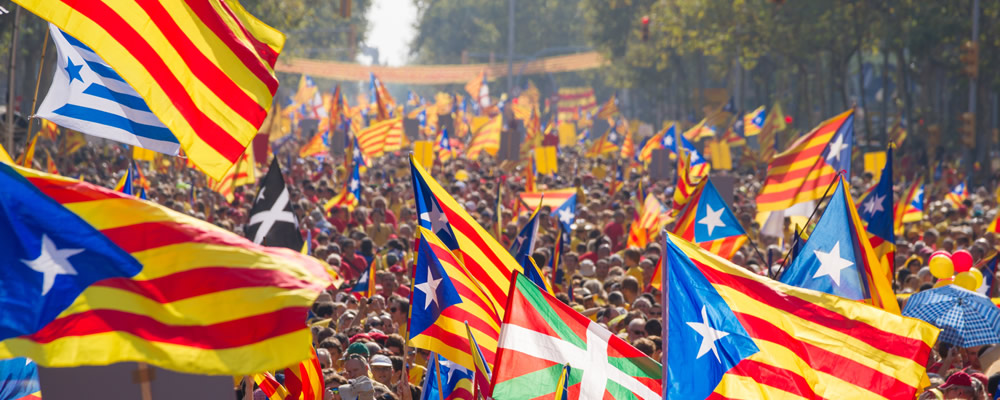The latest developments in the Catalan crisis did not much impress markets, leaving the Euro biased to the downside.
As the Spanish government reacted with displeasure to Catalan president Carles Puigdemont’s letter, which failed to clarify whether the region has indeed declared independence or not, EUR exchange rates softened.
With reports also emerging that the regional government intends to ignore Madrid’s ultimatum to clarify its position by Thursday the appeal of the Euro weakened further.
An unexpected narrowing of the Eurozone’s trade surplus in August also dented confidence in the single currency.
Even so, the Euro Pound exchange rate could find a rallying point on Tuesday as forecasts point towards an uptick in the German ZEW economic sentiment survey.
If the Eurozone’s powerhouse economy continues to demonstrate signs of resilience then the mood towards the single currency could improve somewhat.
A similar improvement in the wider Eurozone measure could also give investors reason to favour the Euro once again.
However, with the political stability of the currency union called into question by events in Catalonia and the recent Austrian election the upside potential of the EUR GBP exchange rate may prove limited in the near term.
Rising UK Inflation to Boost Pound Demand
Brexit continued to dominate the outlook of the Pound, meanwhile, with investors still speculating over the likelihood of any imminent progress towards a deal.
As reports suggested that the UK government is bracing for a collapse in negotiations, though, the mood towards Sterling soured on Monday.
With the start of the second phase of talks already likely to be delayed hopes for a smooth transition have continued to fade.
As analysts at BBH noted:
‘The EU’s Barnier’s claim that Brexit talks are deadlocked means that the heads of state (EU Council), which meet at the end of next week, are unlikely to overrule their chief negotiator. That means that the familiar issues, like the exit bill, Northern Ireland’s border, and citizens’ rights will continue to be discussed. If “sufficient” progress is made, December is the next window of opportunity to shift the talks to the new relationship and trade.’
However, the EUR GBP exchange rate could come under pressure in the wake of September’s UK consumer price index data.
If inflationary pressure accelerates to 3% on the year then this is likely to give the Bank of England (BoE) further encouragement to raise interest rates in November.
So long as BoE Governor Mark Carney maintains a relatively hawkish stance on monetary policy in an appearance before the Treasury Committee tomorrow then this could also boost the Pound against its rivals.
Current EUR GBP Interbank Exchange Rates
At the time of writing, the Euro Pound exchange rate was trending lower around 0.8894. Meanwhile, the Pound Euro exchange rate was making modest gains in the region of 1.1242.



